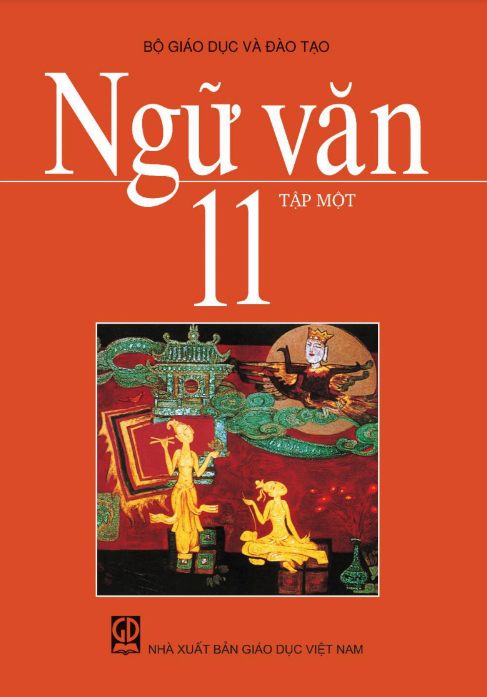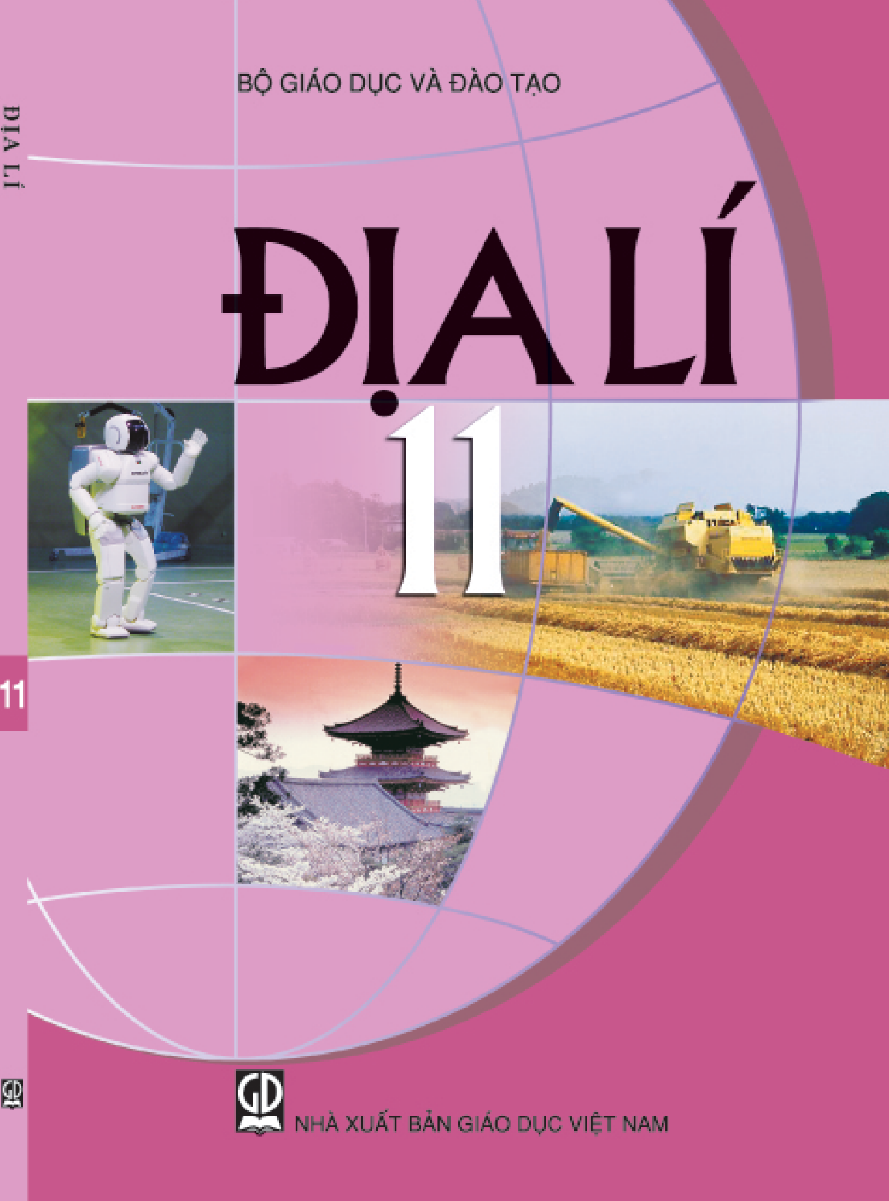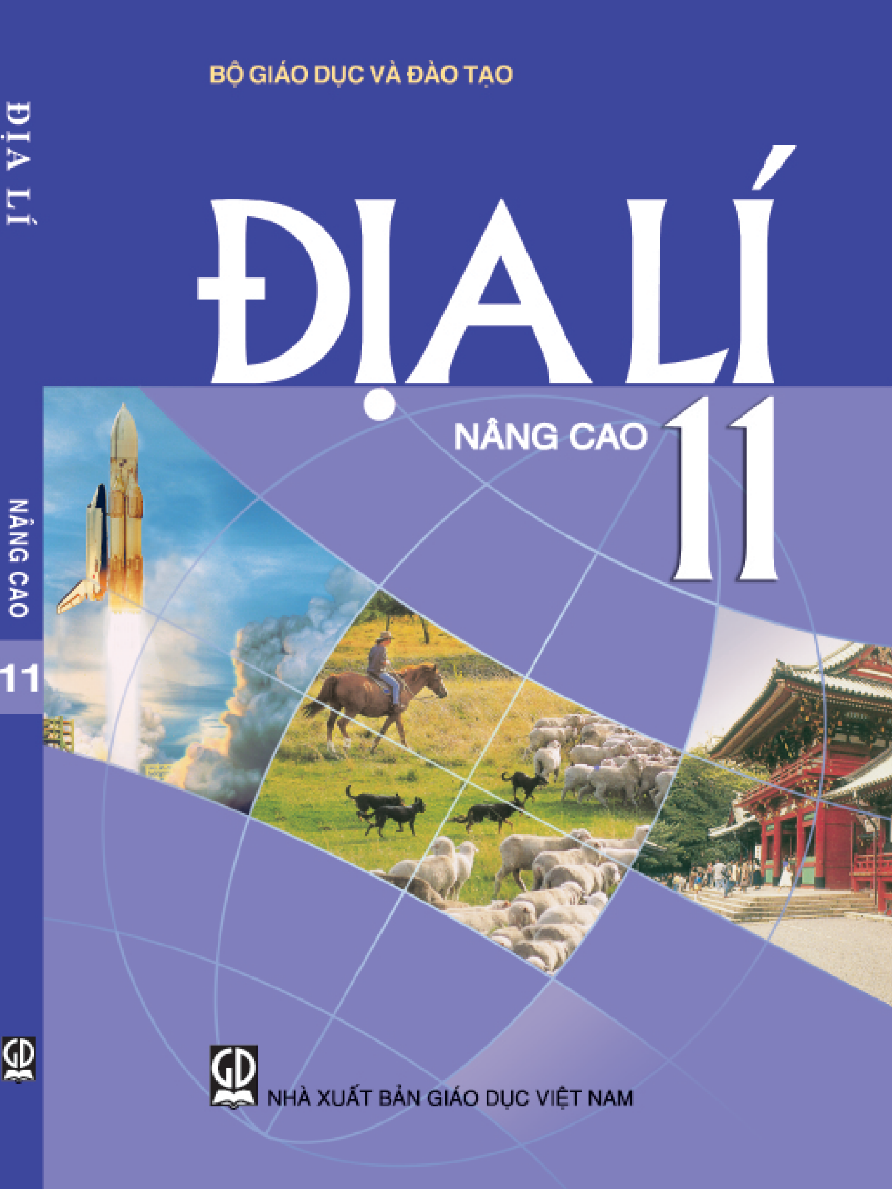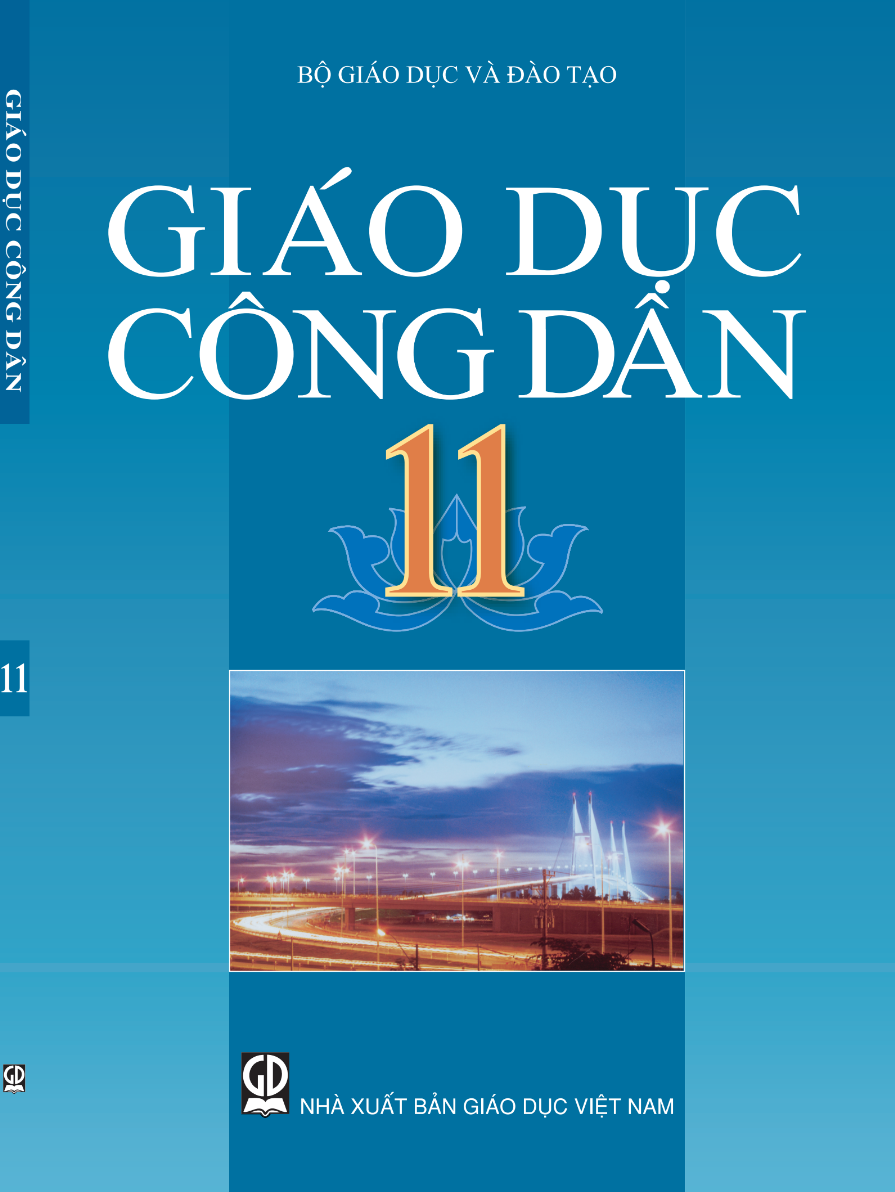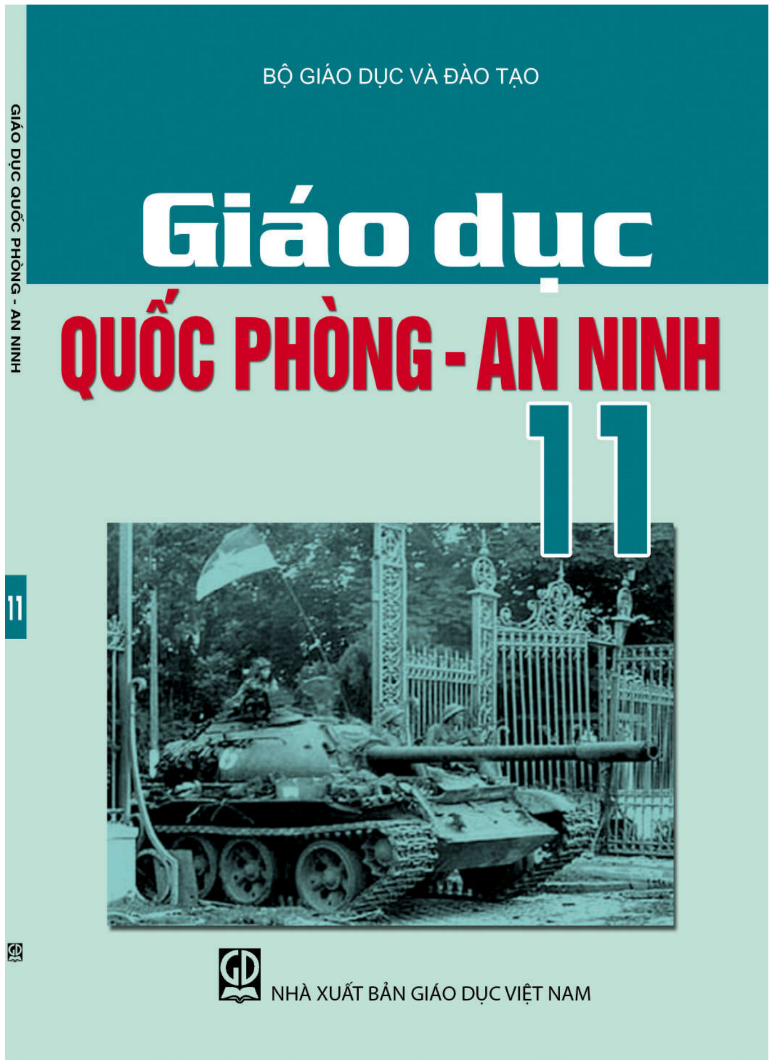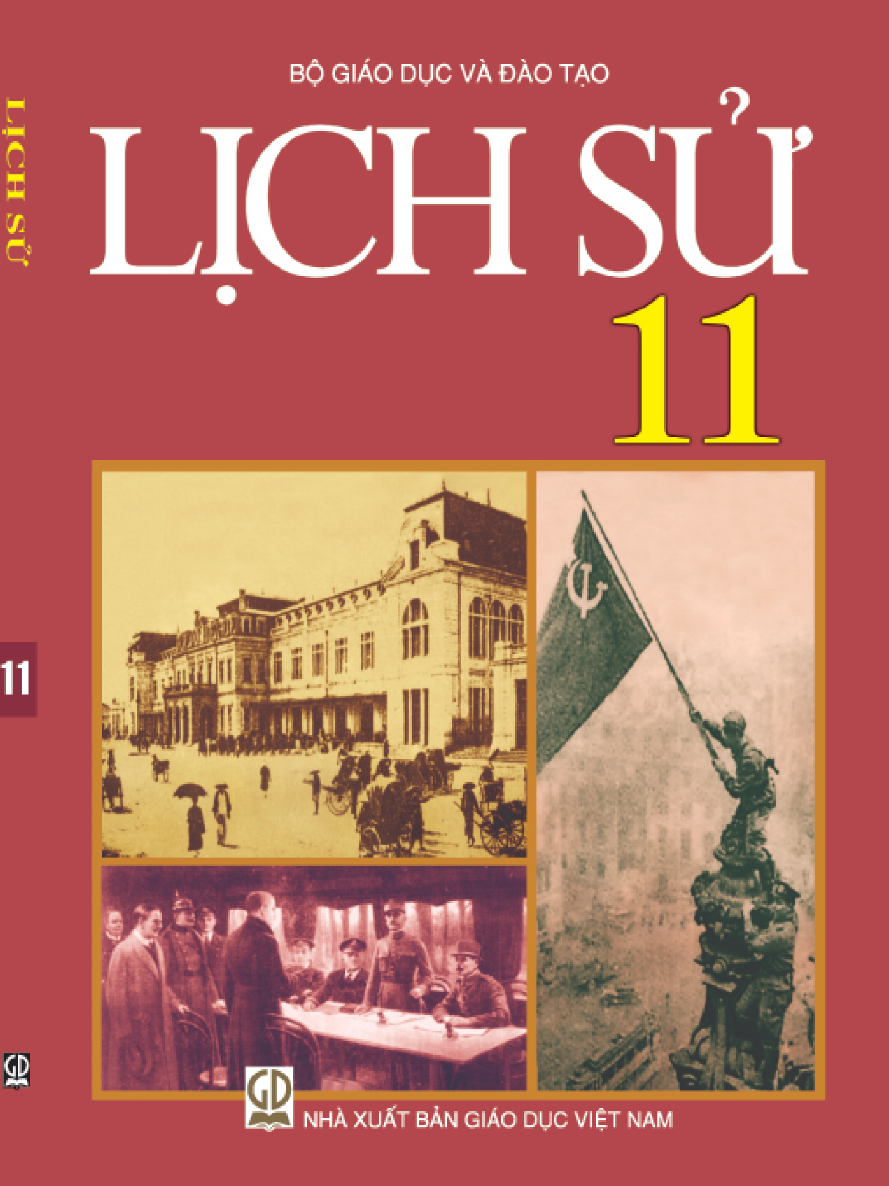(Page 73)
VII. COMMUNICATION AND CULTURE / CLIL
Everyday English
Asking for and giving directions
1. Listen and complete the conversation with the expressions in the box. Then practise it in pairs.
A. could you tell me the way to
B. turn left
C. on your right
D. Go straight ahead
David: Excuse me, (1) _____ Thang Long Imperial Citadel? I'm lost.
Nam: Sure. The citadel is not far from here. (2) _____ until you get to Hoang Dieu Street, then (3) _____. Walk past Ha Noi Flag Tower and you'll see it (4) _____.
David: Thank you.
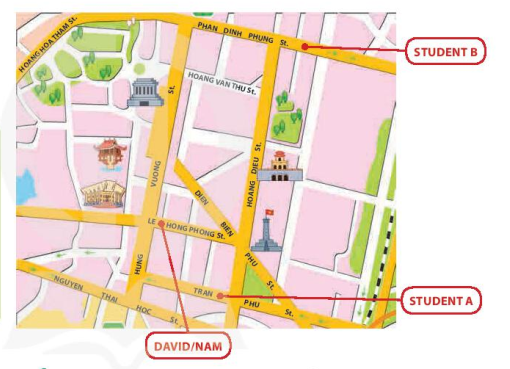
 One-pillar Pagoda
One-pillar Pagoda
![]() Ho Chi Minh Museum
Ho Chi Minh Museum
 Ha Noi Flag Tower
Ha Noi Flag Tower
 Ho Chi Minh Mausoleum
Ho Chi Minh Mausoleum
 Thang Long Imperial Citadel
Thang Long Imperial Citadel
2. Work in pairs. Use the model in 1 to make similar conversations for these situations. One of you is Student A, the other is Student B. Use the expressions below to help you.
1. Student A is asking for directions to Ho Chi Minh Mausoleum. Student B uses the map to give directions.
2. Student B is asking for directions to Ha Noi Flag Tower. Student A uses the map to give directions.
| Useful expressions |
| Asking for directions | Giving directions |
| Can you tell me the way to ...? Excuse me, is... near here? How do/can I get to ...? Which is the best/easiest way to ...? | Movement: Go straight ahead/on. Walk along... street/road. Walk past the (post office/bank). Turn left/right at the traffic lights/into Star Street. Take the first/second road/turning on the left. Location: It's on your left/right. It's next to/opposite/between/at the end of/behind/ in front of... It's (just) around the corner. |
(Page 74)
Culture
1. Read the text and answer the questions.
PRESERVING HERITAGE AROUND THE WORLD
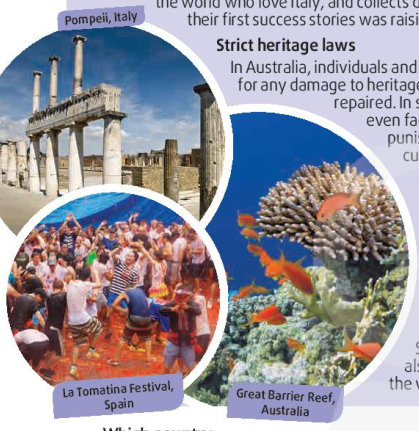
Crowdfunding for heritage!
Preserving their heritage can present a challenge to many nations, especially if they have a large number of heritage sites, like Italy does. However, the country has found a new method of raising money for heritage projects from a large number of individuals and businesses - crowdfunding. For example, loveitaly, a non-profit organisation, uses its website to reach all the people around the world who love Italy, and collects donations from everyone who wants to help. One of Pompeii, Italy their first success stories was raising enough money to restore an ancient site in Pompeii.
Strict heritage laws
In Australia, individuals and companies have to pay a fine of AU$1,000 to AU$5,000 for any damage to heritage sites or objects, regardless of whether they can be repaired. In some cases, the fines are heavier, and people could even face time in prison. The authorities hope the harsher punishments can stop people from destroying or damaging cultural sites and items, and prevent heritage crime.
Tourism works!
Spain is one of the countries that has successfully promoted its cultural heritage through tourism. For many years, festivals such as La Tomatina (in which people throw tomatoes at each other) or Las Fallas (a five-day festival of fireworks and light shows) in Valencia have attracted millions of local and foreign tourists. The unique architecture in Barcelona, home to nine UNESCO World Heritage Sites, and Santiago de Compostela's Old Town, which is also on the world heritage list, are famous all over the world.
Which country...
1. raises money from the public for restoring its heritage?
2. organises successful festivals that attract visitors from around the world?
3. fines people heavily if they damage its heritage?
2. Work in groups. Discuss the following questions.
Are the methods of preserving heritage in the text used in Viet Nam? Which one do you think works best in Viet Nam?
